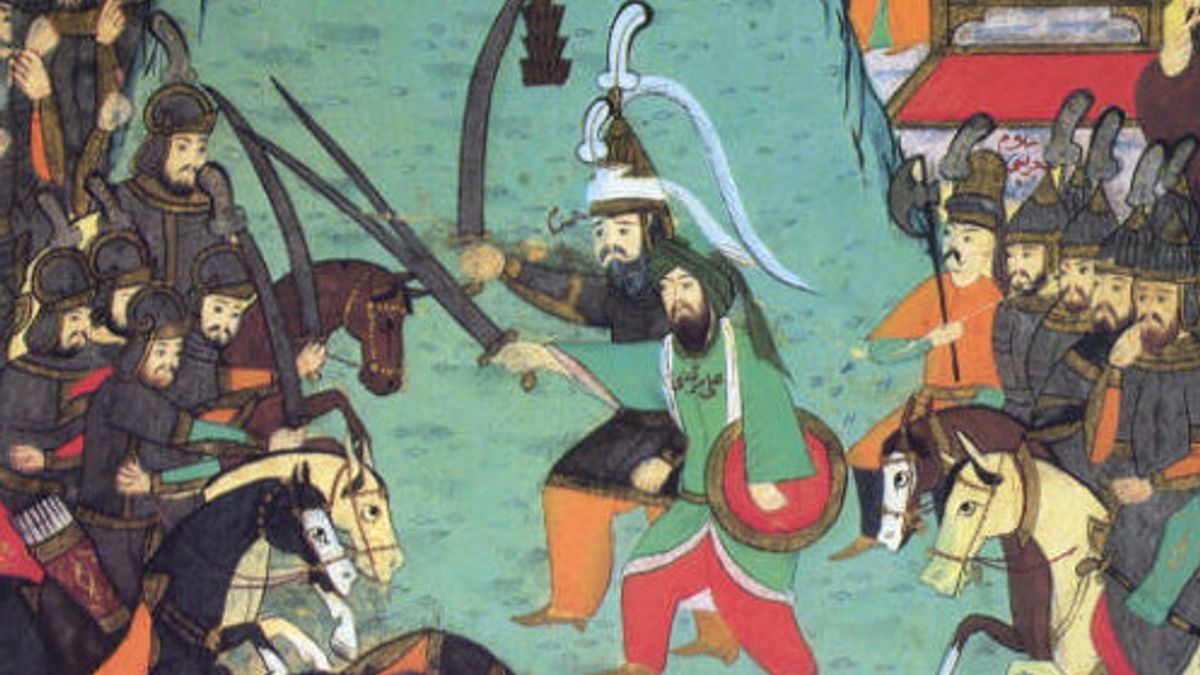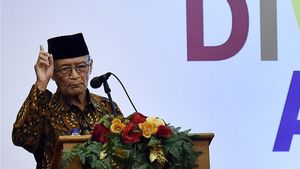JAKARTA - The Battle of Badr is a major event for Muslims. This event is considered to be the starting point for this new religion known to many people, especially in the Arabian Peninsula. However, like a double-edged knife, the word 'war' is increasingly being juxtaposed with Islam. In fact, Islam is not a religion of war.
Quoting National Geographic, today, March 13, 6th century or 624 year, the Prophet Muhammad led Muslims in the war of Badr. This war became a major event because apart from being the first war, there were many heroic actions in this war.
Years before the war, the Prophet Muhammad and Muslims experienced an event called hijrah. They left their birthplace, Makkah, to a city nearly 500 kilometers away, namely Medina.
According to Rizem Aizid in The Great Sahaba (2018), the movement of the Muslims to Medina was because they were "always persecuted by the polytheists (anti-Islamic Quraysh)" wrote Aizid.
The move of Muslims to Medina made the new religion more followers and stronger from an economic point of view. This then led to sentiment from the people of Mecca who were anti-Islam. There are attempts to boycott the economy of the Muslims who want to trade. As a result, clashes between the Muslims and Quraish merchants often took place on the Medina trade route which included a stop in the Badr valley.
The climax of the confrontation then occurred 2 years after the hijrah. At that time around 300 Muslims who were directly led by the Prophet Muhammad moved to the Badr valley which was greeted by around 1,000 anti-Islamic Makkah troops. Battle is inevitable. However, even though in terms of numbers, the Muslim army won the war that occurred during the 17th month of Ramadan.
According to Aizid (2018) the victory of the Muslims has two effects for Islam. First, Islam has become a new religion whose existence is beginning to be recognized. And second, Islam is increasingly hated by the anti-Islamic group of Mecca.
War is a last resort
Badr war has become a major event for Muslims. This first major war for Muslims also coincided with the momentum of the Nuzulul Quran, which is the event that the Qur'an was revealed to the earth. However, once again, Islam is not a religion of war.
In Islam, according to the Young Scholar Habib Husein Ja'far Al Hadar, war is the last way to fight injustice. This was done to fight against people who were fighting against Muslims.
When there are people who try to fight against the Muslims, "So the Muslims fight back to stop them from abusing Muslims. Not to dominate, let alone spread Islam. No," said Husein when interviewed by Era in Podcast.

According to Husein, the first step that must be taken to resolve disputes is to find points of peace. One of them is by means of suro (deliberation).
When the deliberations do not reach common ground, the next step is to make an agreement. For example, not to do war, and then not to hurt each other. After that method does not work at all, "only with war, but with a foundation of love and always ready to forgive."
Moreover, in the context of the Badr war which occurred in the month of Ramadan, it raises many questions. Isn't it in Islam especially during the fasting month, let alone war, just not getting angry?
Husein has the answer. According to him, in Islam, there is an important foundation in war, namely the foundation of love.
"It means that war is not fought, first with lust, not out of anger, not because of hatred. But war must be based on a holy background and love," said Husein.
Therefore, in the month of Ramadan which is associated with a month full of forgiveness, it means that no matter how many Muslims fight, the door to their forgiveness to the enemy should be opened as wide as possible. "So once they apologize, they no longer commit crimes, then we must forgive them at that moment," said Husein.
Moreover, the rule of war in Islam which is the final step is very strict. Husein explained that in the rules of Islamic warfare, apart from not killing children and women, they were also not allowed to kill animals and even plants. Then also it is not allowed to destroy houses of worship for people of other religions. "And killing other religious figures," said Husein.
This makes it clear that war is not for spreading religion. And in fact, it reflects the value of tolerance, how during the war we should not destroy houses of worship of other religions.
According to Husein, not a few consider Islam as a religion of war. Yet according to him, if you look at the prophet's track record, the total prophetic period is 23 years or about eight thousand days. Only about 1 percent or 80 days are used for war.
"The remaining 99 percent of the prophet's life is two: upholding peace becomes a blessing, the second is to become a person with high personality and morals to others, which is called morals," he concluded.
The English, Chinese, Japanese, Arabic, and French versions are automatically generated by the AI. So there may still be inaccuracies in translating, please always see Indonesian as our main language. (system supported by DigitalSiber.id)









